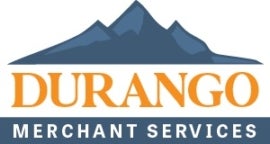If your business is tagged as high-risk, you need to work with high risk merchant processors. My top recommendations for best high risk merchant account providers are:
If you have ever been rejected for a merchant account, your business might be classified as high risk. As such, working with a specialized high risk payment gateway is in order. High risk merchant account providers provide high risk businesses with merchant accounts and payment processing services to be able to operate in high-risk industries (like age-restricted businesses and those that have high rates of fraud or chargebacks).
Top high risk merchant accounts comparison
When comparing high risk merchant accounts, consider whether they can work with businesses under the MATCH list, their approval processing timelines, and approval rates.
| Our rating (out of 5) | Starting price (monthly) | Approval processing time | Approval rate | Works with MATCH list* businesses | |
|---|---|---|---|---|---|
| PaymentCloud | 4.91 | $10–$45 | 48 hours | 98% | Yes |
| Durango Merchant Services | 4.42 | $30 | 4–6 business days | Undisclosed | Yes |
| First Card Payments | 4.23 | Custom | 24–48 hours | Undisclosed | Yes |
| Host Merchant Services | 4.05 | $14.99 | Undisclosed | 98% | Yes |
| High Risk Pay | 3.93 | $9.95 | 24–48 hours | 99% | Yes |
| *The MATCH (Member Alert to Control High-Risk) list is a database maintained by Mastercard to “identify a potentially high-risk merchant before entering into a merchant agreement”. Previously referred to as the Terminated Merchant File (TMF), it is a list of merchants who have had their payment processing privileges revoked by an acquiring bank or processor. Merchants stay on the list for five years. | |||||
PaymentCloud: Best overall
Our rating: 4.91 out of 5
PaymentCloud tops my list of best high-risk merchant account providers because of its variety, flexibility, and hands-on approach to its clients. When you apply for a high-risk merchant account, a dedicated account manager will work with you from your application to onboarding, and you get 24/7 customer support thereafter.
And more importantly, PaymentCloud works with any gateway. You can work with your preferred provider, or they can help you find the lowest rates with their multiple backend processors. If you sell in person, PaymentCloud is also compatible with most point-of-sale (POS) systems.
PaymentCloud is just so easy to work with, as they stay flexible, take note of your preferences, and work with a lot of partners to provide you with plenty of the best options.
Why I chose PaymentCloud
You would not find PaymentCloud limiting as a high-risk merchant. It has one of the best, if not the best, customer service and onboarding systems among the high-risk merchant account providers I have reviewed. It has the highest user review score among the providers I mention in this list, and its account features and security scores are the highest together with Host Merchant Services.
Payment Cloud also boasts of a 98% approval rate in 48 hours with businesses under the MATCH list, making it one of the easiest high-risk merchant account providers to use. And if you need hardware to accept payments in person, the provider can give you a mobile EMV terminal when you sign up for a zero-cost credit card processing account.
Pricing
- Monthly fee: $10-$45.
- High-risk transaction fees: 2.7%-4.3%.
- Chargeback fee: $25.
- Rolling reserve requirement*: 0–10%.
- Chargeback fee: $25.
- Cancellation fee: Waived.
- Early termination fee: Waived.
*A rolling reserve requirement is where you will be required to set aside a portion of your sales for a given period of time. This is a common practice for high-risk accounts and part of the merchant agreement with your merchant service provider as a buffer or safeguard from chargebacks.
Features
- Works with all payment gateways.
- Customized fee structure for clients.
- Compliant credit card surcharging.
- Dedicated and hands-on onboarding support.
- Offers a free EMV terminal for new accounts.
- Compatible industries: Adult products, telemedicine, dating sites, pharmacy, guns and firearms, nutraceuticals, and more. PaymentCloud has a full list of compatible industries.
Pros and cons
| Pros | Cons |
|---|---|
| Supports zero-cost credit card processing (surcharge compliant). | Monthly volume limits. |
| Can work with most payment processors. | Monthly payment gateway fee. |
| Extensive software integrations. | Fees aren’t fully disclosed on its website. |
| 24/7 support with a dedicated account manager. |
Durango Merchant Services: Best for highest-risk businesses
Our rating: 4.42 out of 5

As one of the oldest merchant service providers specializing in high-risk accounts, Durango Merchant Services is known for being able to provide merchant accounts to businesses with bad credit and those businesses that are hard to classify, such as adult content services, payday loans, and multi level marketing companies.
Why I chose Durango Merchant Services
Durango Merchant Services boasts plenty of success providing merchant accounts to those who have already been declined by other providers. Their partnerships with local and international banks has helped businesses increase their chances of getting approved for a merchant account.
Like PaymentCloud, it has a customized pricing structure based on a merchant’s risk, credit, and needed payment methods.
Pricing
Pricing is based on custom quotes. Below is an average of fees provided by their representative.
- Monthly fee: $30 (including payment gateway).
- Ecommerce/MOTO transaction fee: Interchange plus 0.25%.
- Rolling reserve requirement: 0%-10%.
- Chargeback fee: $25.
- Early termination fee: $0.
Reach out to the provider for a quote.
Features
- Omnichannel payment support.
- Recurring billing functionality.
- Multi currency support (more than 20 currencies from over 200 countries).
- Multi language support for proprietary gateway (15 languages).
- Offshore merchant account.
- More than 150 shopping cart integrations.
- Personal account managers with over a decade of experience.
- Compatible industries: Membership businesses, herbal supplements, fortune-telling services, mail or telephone order (MOTO) businesses, multi level marketers, online auctions, and more.
Pros and cons
| Pros | Cons |
|---|---|
| Gateway and fraud prevention training. | Must reach out for a quote to get a transparent pricing structure. |
| Offshore merchant accounts available for high-risk merchants. | Has a monthly minimum processing amount. |
| Undisclosed application approval rating |
First Card Payments: Best one-stop solution
Our rating: 4.23 out of 5

First Card Payments claims to specialize in high risk B2B merchants with at least six months of credit card processing history. But what sets First Card Payments apart from other providers I recommend on this list is that it provides operational support through its partnerships with other companies for SEO, web development, customer support, and call center services. This makes the provider a one-stop solution for high risk merchants.
Why I chose First Card Payments
Like Durango Merchant Services, First Card Payments has strong relationships with more than 30 banks and ISOs, helping businesses who have poor credit get approved for merchant accounts. The provider’s website doesn’t hold too much information; their prices are not disclosed, and you will need to contact them for a quote.
However, it is easy to get a response from First Card Payments once you reach out to them. They claim to guarantee merchants a 25% reduction of their current merchant fees if they switch over to them.
Pricing
Pricing is based on custom quotes. Below is an average of fees provided by their representative.
- Monthly fee: Custom.
- High-risk transaction fee: Interchange plus 0.25%–2.5% + 10–20 cents.
- Rolling reserve requirement: Unspecified.
- Chargeback fee: $25.
- Early termination fee: $0.
Reach out to the provider for a quote.
Features
- Personal relationships with banks and ISOs (30+ banks).
- Works with offshore and B2B merchants with level 2 and 3 data processing.
- In-house partners for operations such as web development, SEO, call center, and phone services.
- Merchant cash advance and financing.
- Compatible industries: B2B, high-volume merchants, bail bonds, adult content, CBD, collection agency, debt relief and consolidation, firearms, online dating, MOTO, and more.
Pros and cons
| Pros | Cons |
|---|---|
| Offers 25% savings on current rates. | Very limited user reviews. |
| Works with offshore merchants and specializes in B2Bs. | Not a lot of information is disclosed on its website. |
| In-house partners for business operation services. |
Host Merchant Services: Best for online businesses
Our rating: 4.05 out of 5

Host Merchant Services provides built-in integrations with most of the major online shopping carts like Shopify, WooCommerce, Magento, and BigCommerce. You also get free web hosting, although you need to pay extra for premium features (such as marketing functionality). Its interchange pricing for ecommerce is also the one of the lowest I have encountered — Interchange + 0.35% + $0.10/transaction.
Why I chose Host Merchant Services
Host Merchant Services has its high risk accounts run through Electronic Merchant Systems (EMS), providing online, mobile, and point-of-sale (POS) payments. While there aren’t many reviews online, it’s graded A+ by the BBB and has no complaints lodged against them by Consumer Affairs. Host Merchant Services also offers business financing like cash discount and advance programs.
Host Merchant Services tied with Payment Cloud in terms of security, reliability, and payment features. They also claim to staff more support agents than sales agents, guaranteeing support calls are answered in three rings by US-based team members. However, like most high-risk merchant account providers, Host Merchant Services’ pricing remains undisclosed, which can be hard when you are shopping for providers for more information.
Pricing
Like some providers in this list, Host Merchant Services provide services on a custom-based quotation. Reach out to them for a quote if interested.
- Monthly fee: $14.99.
- Transaction fee: Interchange-plus, but varies based on business type.
- Rolling reserve requirement: Unspecified.
- Chargeback fee: Unspecified.
- Early termination fee: $0.
Features
- Integrates with popular and often-used ecommerce platforms.
- Electronic payment processing.
- Recurring billing.
- Supports a variety of payment gateways.
- Integrates with other business operations software.
- 24/7 US-based support — guaranteed to answer in three rings.
- Free equipment program to 98% of its qualified merchants.
- Compatible industries: ecommerce businesses, online casinos and gambling, CBD, pawnshops, and offshore businesses.
Pros and cons
| Pros | Cons |
|---|---|
| Interchange plus pricing. | Limited to US merchants. |
| 24/7 US-based support. | Not ideal for low-volume businesses. |
| No setup or application and early termination fees. | Exclusive to Electronic Merchant Systems (EMS) processing. |
High Risk Pay: Best for businesses with poor credit history
Our rating: 3.93 out of 5 (if applicable)

If you have been rejected or struggling to get approved for a high-risk merchant account, High Risk Pay is worth a try. With a 99% approval rate, it specifically claims to work with all types of businesses, even those with bad credit. Aside from high approval rates, High Risk Pay has the fastest turnaround time for approvals — as fast as 24 hours.
Why I chose High Risk Pay
Transparency and chargeback prevention tools are High Risk Pay’s standout features for me. High Risk Pay is the only provider in this list that clearly lists its pricing on its website, specifying high risk transaction fees and monthly pricing.
High Risk Pay’s chargeback prevention tools are also better than most, with a win rate twice the industry average.
Pricing
- Monthly fee: $9.95.
- High risk transaction fee: Ranging from 2.49% to 25 cents to 2.95% + 50 cents.
- Rolling reserve requirement: Not specified.
- Early termination fee: $0.
Features
- No setup and application fees.
- Fast and high approval rates — as fast as 24 hours with 99% approval.
- Extensive chargeback prevention tools.
- Next day funding.
- Free retail credit card terminal.
- Compatible industries: Businesses with poor credit history, adult content, CDB, dating, debt collection, ecigarette and vape, and more.
Pros and cons
| Pros | Cons |
|---|---|
| Lower monthly fee compared to other providers in this list. | Limited service portal integrations. |
| Faster approvals — as fast as 24 hours. | Limited information about its payment services. |
| High approval rate. |
What is considered a high-risk merchant account?
A high-risk merchant is a business deemed as a risk by financial institutions, often because of bad credit or a chargeback ratio over 1%. Those in vulnerable or questionable industries, like CBD vendors, offshore operations, and gambling, are also classified as high risk. These businesses usually pose significant risks of chargebacks, fraud, and other potential issues, like money laundering.
What makes a business high-risk?
A business is deemed high-risk if it belongs in an industry that is highly susceptible to fraud and chargebacks. A business is also classified as high risk in the following situations: poor credit rating, included in the MATCH list, and highly dependent on international sales.
High risk vs low risk: What’s the difference?
A high risk and low risk merchant have quite a number of differences. High risk merchants usually have low approval rates with the usual merchant service providers and would need to work with a high-risk merchant account provider to get a high risk merchant service.
High risk merchant accounts have higher monthly fees and transaction rates, long-term contracts, and non-waivable chargeback fees. A merchant application and rolling reserves deposit are also required due to the risk involved with opening a merchant account.
How do I choose the best high risk merchant account for my business?
While it’s a given that a high risk merchant account provider charges more because of the associated risks of working with high risk businesses, it is still a must to compare prices before locking in a long-term contract.
Some providers require merchants to stock a reserve to reduce risk, so it is also critical to find out more about the provider’s reserve requirement and whether it must be rolling or capped. Processors use this reserve to compensate for chargeback, monetary penalty, or other fees.
Finally, make sure to understand your merchant contract. Consider the terms and conditions indicated. High risk merchant accounts usually have three- to five-year terms. Keep an eye out for auto-renewal clauses, early termination costs, and other term details.
Methodology
Based on my experience helping retail businesses build their ecommerce stores and start securely accepting payments online, I looked at popular and highly-rated merchant services that specialize in high-risk businesses.
From my initial list, I graded them using an in-house rubric of 17 data points based on pricing and account features, giving extra weight to security, reliability, and user reviews. I only considered merchant services that specialize in high-risk businesses, with a trained in-house team dedicated to those accounts, including how to get them approved.
This article and methodology were reviewed by our retail expert, Meaghan Brophy.
Read the full article here














